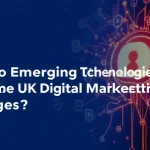Transformative Role of Smart Technology in UK Communication
The UK communication landscape is undergoing profound transformation, driven by rapid advancements in smart technology. From urban centers to rural areas, innovation reshapes how information flows, enabling faster, more reliable, and more interactive communication experiences. This ongoing change is not just about improved devices; it represents a fundamental shift in infrastructure and connectivity that empowers individuals, businesses, and government services alike.
Key drivers of this transformation include artificial intelligence (AI), the Internet of Things (IoT), and 5G networks. AI enhances communication systems by enabling intelligent data processing, predictive analytics, and personalized user interactions. For example, chatbots and virtual assistants leverage AI to provide instant customer support, reducing wait times and increasing satisfaction. Meanwhile, IoT connects diverse devices, from smartphones to wearables, fostering seamless communication across platforms in real-time. The rollout of 5G dramatically increases bandwidth and reduces latency, allowing for higher quality video calls, augmented reality applications, and smart city initiatives that rely on constant data exchange.
Additional reading : How Can Smartphones Influence Evolving Computing Trends in the UK?
Supporting these advancements is the UK’s robust digital infrastructure. Investment in fiber-optic networks and data centers ensures stable, high-speed connections crucial for smart technology to operate effectively. This infrastructure underpins innovation by enabling the swift transfer of large data volumes necessary for AI algorithms and IoT devices to function optimally. In essence, the synergy between smart technology and digital infrastructure is revolutionizing UK communication, providing a foundation for a connected future defined by agility and efficiency.
Impact on Personal Communication
The rise of AI-driven messaging has significantly transformed how UK consumers interact within their homes. Integration with IoT devices in smart homes enables seamless and instant communication, making everyday conversations more fluid and context-aware.
Have you seen this : How Do Smartphones Enhance the User Experience in UK’s Technological Ecosystem?
For instance, AI assistants embedded in smart home systems can interpret voice commands to send messages or reminders, bridging gaps in personal communication. These AI-powered tools allow users to multitask effortlessly, managing interactions without needing to physically handle devices. UK consumers have experienced enhanced connectivity, enabling family members to stay linked regardless of their location within the home.
However, this transformation raises important privacy and data security considerations. With AI systems processing personal conversations, ensuring data is encrypted and securely stored becomes critical. UK consumers must be aware of the privacy policies governing these technologies to safeguard their information. Emphasizing transparency and control over data usage helps build trust in AI-driven messaging within smart home ecosystems.
Business Communication Revolution through Smart Technology
Enhancing collaboration and efficiency in UK enterprises
The integration of smart technology has transformed business communication in profound ways, especially within the context of remote work. UK enterprises increasingly adopt AI automation to streamline communication processes, enabling teams to collaborate effectively regardless of location. Automated communication platforms reduce manual overhead by handling routine tasks such as scheduling, follow-ups, and data sharing, allowing employees to focus on higher-value activities.
Productivity gains are evident as businesses utilize these intelligent systems to deliver timely, context-aware messages. These tools analyze communication patterns and adapt responses accordingly, fostering clearer and more efficient interactions. For example, AI-driven chatbots can handle common inquiries instantly, minimizing delays in information flow.
Real-world UK case studies illustrate the tangible benefits. Companies have reported enhanced employee engagement and faster decision-making cycles after implementing smart communication solutions. These platforms support seamless integration with existing tools, preserving organizational workflows while introducing automation advantages.
In summary, by embracing AI automation and smart communication technologies, UK enterprises can overcome traditional barriers of remote work, achieving improved collaboration and business outcomes.
Public Sector and Urban Communication Advancements
The public sector plays a crucial role in driving the transformation of urban areas through smart city initiatives. These initiatives leverage IoT infrastructure to enhance a wide range of public services, from transport networks to emergency response systems. By integrating IoT devices and sensors, cities can collect real-time data that improves efficiency, safety, and resource management, meeting the evolving needs of urban populations.
In transport, IoT enables dynamic traffic management and public transit optimization, reducing congestion and pollution. Public safety communications benefit from connected sensors and advanced monitoring systems, facilitating faster emergency responses and better coordination among agencies. These enhancements foster safer, more resilient urban environments.
The UK government supports these advancements with targeted strategies promoting smart technology adoption across municipalities. These policies encourage investment in IoT infrastructure, ensuring interoperability and data security to maximize public benefits. Coordinated efforts between local authorities and the government accelerate the integration of smart solutions, positioning the UK as a leader in smart city development.
Benefits and Challenges of Smart Technology Integration
Smart technology brings significant benefits including improved efficiency and enhanced accessibility in communication. Devices now allow seamless interaction across distances, breaking down barriers for individuals with disabilities or those in remote locations. This accessibility boost is crucial in sectors like healthcare and education, where timely, clear communication can make a world of difference.
However, these benefits come with challenges. The digital divide remains a pressing issue; not everyone has equal access to smart technologies or the internet, which can widen social and economic inequalities. Tackling this divide requires concerted efforts to provide affordable access and digital literacy training.
Cybersecurity is another core concern. As smart devices proliferate, so do risks of data breaches and unauthorized access. In the UK, regulatory bodies are stepping up to enforce stricter data protection measures to safeguard users. These include guidelines for device manufacturers and service providers to enhance security protocols, protecting personal information from cyber threats.
Balancing the benefits of smart tech with these challenges demands ongoing attention to accessibility, fair access, and robust security frameworks—ensuring that technological progress serves everyone effectively.
Future Trends and Prospects for UK Communication
The future of UK communication is poised for transformative change, driven by emerging technologies such as 6G and edge computing. These innovations promise to deliver faster, more reliable, and seamless connectivity. With 6G on the horizon, data transmission speeds could surpass current 5G capabilities by a significant margin, enabling real-time interactions with minimal latency. This will enhance not only personal communication but also critical sectors like healthcare, education, and remote work environments.
Investment and policy decisions will play a crucial role in shaping the trajectory of UK innovation in this space. Strategic funding fosters research in future trends like artificial intelligence integration and advanced network architectures, ensuring the UK remains at the forefront of global communication advances. Well-crafted regulations can address security, privacy, and infrastructure deployment challenges, creating an environment where emerging technologies flourish.
The impact of these advancements on daily life and professional settings will be profound. Enhanced connectivity enables smarter devices and systems, supporting everything from immersive virtual meetings to efficient data sharing in industries such as manufacturing and finance. Understanding these future trends helps individuals and businesses prepare for a connected future grounded in cutting-edge technology and robust UK innovation.









